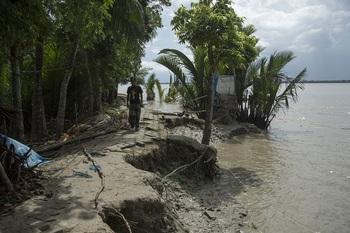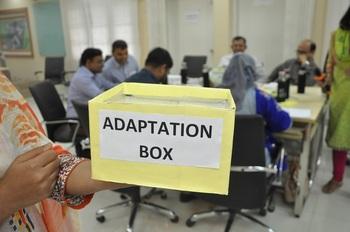Context
Bangladesh lies in the delta of the three major rivers, Padma, Jamuna-Brahmaputra and Meghna, and is the home to more than 160 million people. It ranks 12th among the most densely populated countries in the world. Bangladesh is well on its way to graduating from its status as Least Developed Country (LDC), with an average Gross Domestic Product (GDP) growth rate of 7.86 per cent in 2018. Nonetheless, it is one of the most vulnerable countries due to climate change (160th of 181 in the ND-GAIN Vulnerability Index). If climate science forecasts prove correct, progress made in development so far could be reversed in the medium term: the sea level in the Bay of Bengal is expected to rise by 30 to 45 cm by 2050, resulting in a possible loss of more than one-tenth of the territory of Bangladesh and internal displacement of 10-30 million people.
Holistic strategies are required at national and local levels to address these challenges and to encourage the effective allocation of limited public investment capital to sectors and regions most at risk. Currently, investments in public infrastructure often do not systematically take climate resilience into account. Moreover, it has been observed that there are scopes for the national actors to become more capable making optimum use of climate risk and vulnerability information in strategic and operational planning, resulting climate resilience being systematically incorporated in public investment projects and national development planning.
Objective
The Bangladesh Planning Commission, Ministry of Planning, and the Government of the People’s Republic of Bangladesh are increasingly using climate risk information during planning and appraisal processes to strengthen the climate resilience of public investments.

